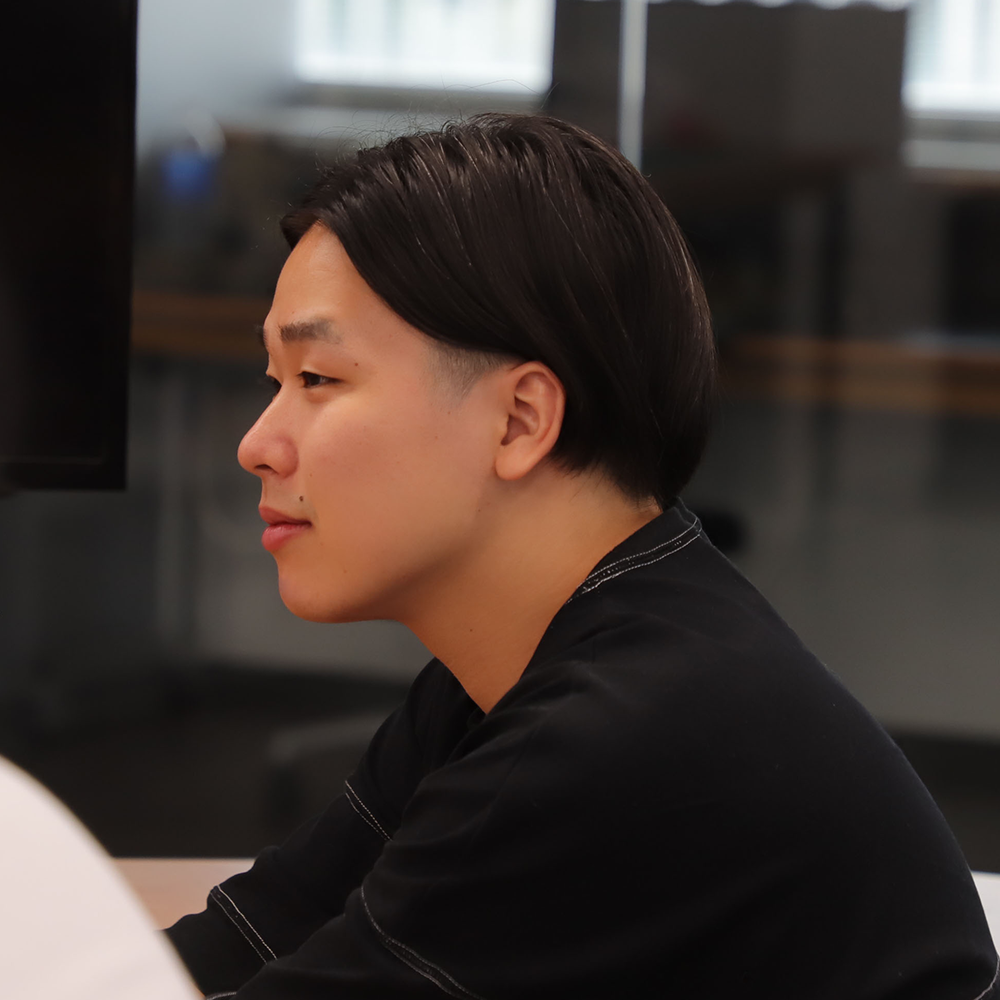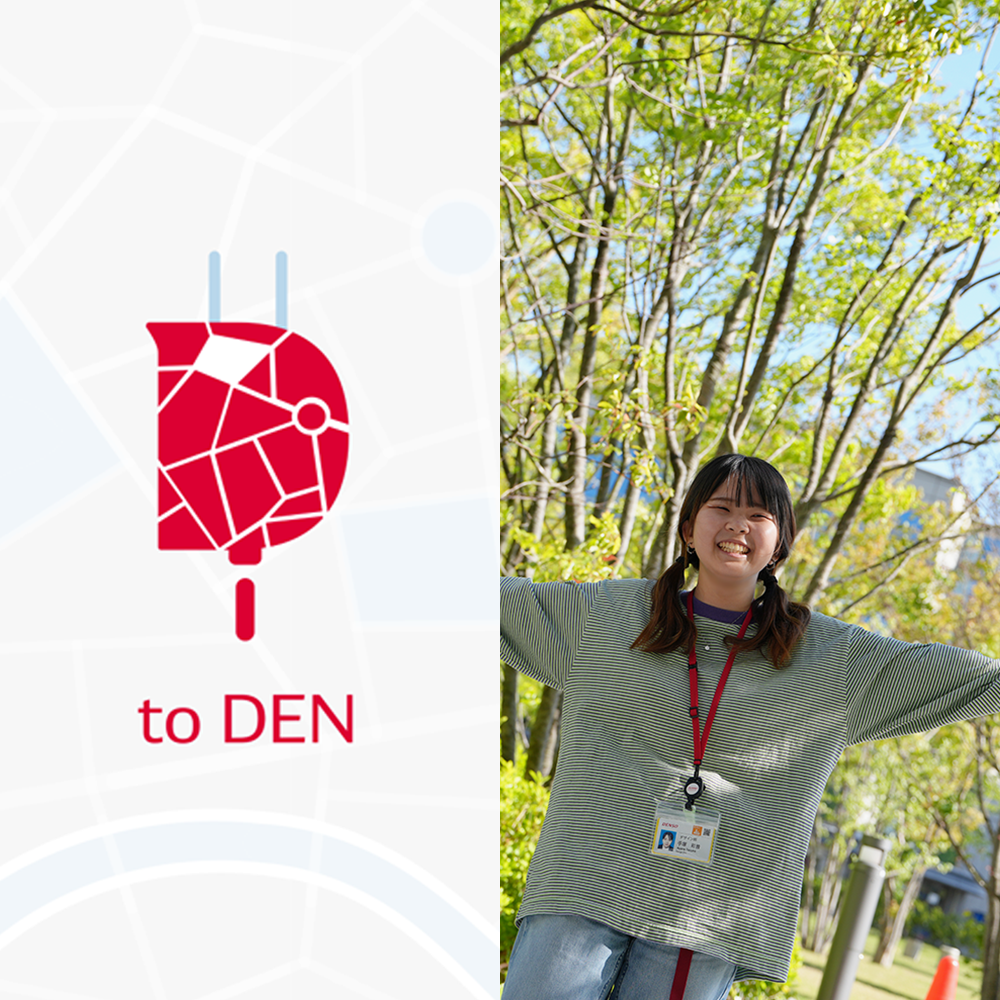[toDEN]
Takaya Ogawa and the DENSO Design Department2024.10.16
-
Table of Contents:
Myself and the DENSO Design Department
The DENSO Design Department is currently running the "toDEN" project, which visualizes the paths connecting us to DENSO through diagrams and lines.
Why did you specifically choose to come to DENSO?
What does it mean to work as a designer at DENSO?
Sugawara, a designer who joined in 2024, sat down with Ogawa for a candid discussion on his connection with DENSO.

Why DENSO?
Actually, I didn't consider job hunting at all until midway through my third year. I suddenly started thinking about it then and headed straight to DENSO, barely applying elsewhere (laughs). I wasn't aware that DENSO even had a design department or had any interest in joining until I learned more about it.
I became interested in DENSO's design department because it aligned with my major. I was in a design production course focused on "creating experiences and systems," where I learned about crafting solutions and experiences. For example, I worked on creating a vision for adult courses, handling everything from logo design to educational content creation with local people. My instructor for this course had previously worked at DENSO, and I learned about DENSO Design's emphasis on comprehensive communication. From that point on, DENSO was my top choice.
Another decisive factor was my interest in in-house design. I thought it would be fascinating to develop products, consider the user experience, and continue bringing them into the world as actual products. My admiration for in-house designers and my own goals aligned perfectly at DENSO.
What turning points or guiding principles do you have as a designer?
Since joining, I've worked on various things, and I'm still wondering, "Which path should I take?" (laughs). Before joining, I was particularly interested in happiness research. I heard that DENSO is forward-looking and explores unique possibilities for the future, which I found incredibly exciting even before I joined. I got the impression that even as an in-house designer, there's room for flexibility here.
However, making research part of your job requires a lot of expertise and skills. After joining, I realized that research demands not just interest but specific skills. A senior designer also pointed out, "You've been involved in production-related work, but your designer output is limited if you focus only on that." That really hit home. So now I want to gain skills that will allow me to hold my own as a designer.
Currently, I often work on graphic and video-related tasks. Both graphics and video are skills I started developing after joining the company. I had been mostly self-taught outside of the basics, so I'm learning and improving through work with the help of my mentors. When I'm developing a skill, I think diving in and trying things is the fastest way to learn. For example, working intensively on a video project helps me gain a basic understanding by the end of the project. At first, I might not know what's good or bad, so I seek guidance from my seniors as I progress.
What supports you?
Before joining, I thought I would be using the skills I already had to contribute to DENSO. But after joining, I realized that the skills I had developed so far weren't nearly enough to be useful in a real-world setting. DENSO's support in this area is incredibly comprehensive. They don't just assign you based on the company's needs; they genuinely consider what you want to do, allowing you to learn and take on new roles if you're interested.
Because of this, I find that DENSO is a place where I can still have some doubts about my career path. I've also discovered new aspects of design that interest me since joining, so I'm having a hard time narrowing down my focus. I used to feel uneasy about not being able to choose one path, but I've come to think that having multiple skills might be beneficial in the long term. Since there are specialists in each field, a versatile person may be appreciated by clients for their flexibility.
For example, I think that if someone with graphic skills works on vision design at DENSO, it can be even more engaging and visually appealing. So I don't feel the need to force myself into a single path. Now, I feel it's better to consider how my skills can support what I want to do.
As for myself, I'm not great at maintaining motivation (laughs). I'm also not much of a reader, so I make it a point to schedule things. Although work takes priority, I set aside hours each week for personal development and push myself by making commitments to those around me!








